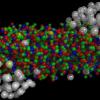-
Posts
259 -
Joined
-
Last visited
Content Type
Profiles
Forums
Events
Everything posted by Sato
-
I read this article earlier and was wondering if it was possible (and any resources on how) to cultivate amoeba that grow on the scale of inches as displayed in the video:
-
I have read through that article as well as others on the topic of scattering theory but my comprehension rate was not very high, I think due to the concentration of jargon on the wikis. How would you describe it?
-
Oh okay, and it's a concrete law of electromagnetism that unbound electrons will repel photons?
-
Or maybe you are Leonard Susskind.
-
You look like Dr. Susskind in your profile picture:
-
You click the Chat tab, then click the Chat Now! button, enter your nickname, and click connect.
-
Oh okay, unfortunately I do not think I am at that level yet. If it's not like that, then what causes the photon to scatter away from the electron?
-
Would the electron repel the photon as if it had the same charge? And is it impossible for free electrons to absorb photons?
-
Isn't scattering the absorption and emission of photons? If not, please correct me. So does the free electrons' having no quantized energy states mean that all free electrons are accessible and their orientations can be changed by photons of all energies/wavelengths?
-
Oh okay, I see. Thank you! But alas, my curiosity on this topic has extended since the preceding Q&A: - Can electrons be free, not harnessed by nuclear forces? Like neutron degenerate matter, but for electrons? - If so, are the distinctions of orbitals and energy levels still applicable? - Can their positions be tracked in a vacuum, using some form of spectroscopy?
-
Does that mean it's such that there are wavelengths that will only affect or be able to access electrons of a certain energy or orbital?
-
Thanks for the heads up!
-
And will this happen the same way when a photon is absorbed no matter the wavelength/energy of the photon or energy state of the electron?
-
So, a photon can change the orientation (up or down) of the electron right?
-
Oh okay, thank you!
-
I was referring to swansont's post mentioning orientation. Is moving to a different orbital what he was talking about? And does the change in orbital depend on the state the electron is currently in or the energy/wavelength of the photon?
-
Is tyvm another way of saying yes? I wasn't sure so I was asking if that's what it's called.
-
Thank you, I thought something was off about what he said, as it also contradicted ajb. If anyone can answer my other question too:
-
I'm quite sure that photons don't have charge, unless that's a misconception?
-
Ed, is wireless charging like this what is called resonant inductive coupling?
-
Thank you. So a photon can change the orientation of the electron? If so, is this definite or does whether the orientation changes depend on the energy state of the electron or photon?
-
Can two photons occupy the same space, as they do not have a mass? Can a photon affect the spin of an electron, if it is absorbed? Do photons of different energies or wavelengths affect electrons differently? Thank you.
-
No, it would likely not be a replica of a human brain, and it would never know those senses therefore not feeling any sorrow for not having them. Albeit I'd assume a large-scale AI system like that would implement image and audio recognition as well, but there's no need to worry about it feeling lonely as it wouldn't be conditioned to be used to being around others.
-
D-Wave Systems recently released their D-Wave Two quantum computer, purchased for use by Google and NASA. The machine is designed to run only certain types of algorithms and is therefore limited in its problem solving abilities, but for those problems which it can be applied, it processes approximately 3200x faster than any classical computer and runs on a 512 qubit register. Of course, this costs many millions of dollars to develop, as stated it can only process certain types of algorithms, and it must be kept cooled to very low temperatures making it of very limited use. What do you think will be the implications of the D-Wave Two, as well as what it may mean for the future progress of quantum computing? Here's a link to a BBC article about it: http://www.bbc.co.uk/news/science-environment-22554494
-
1


